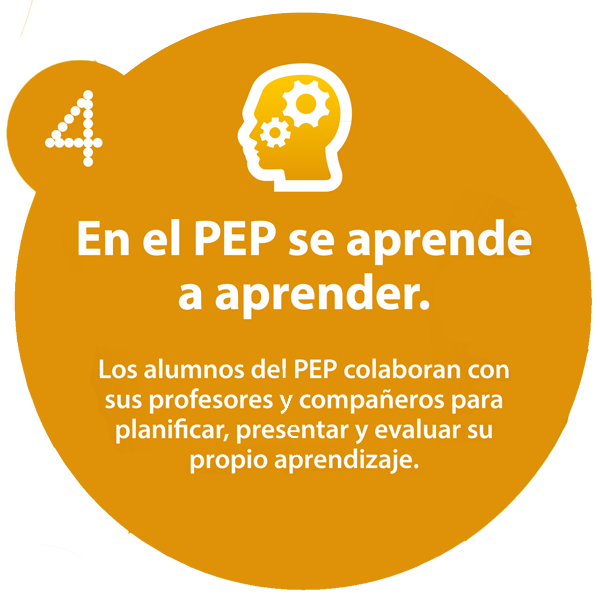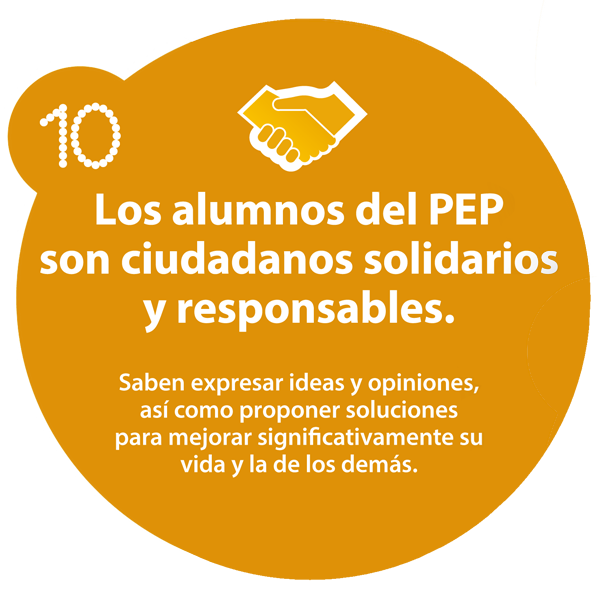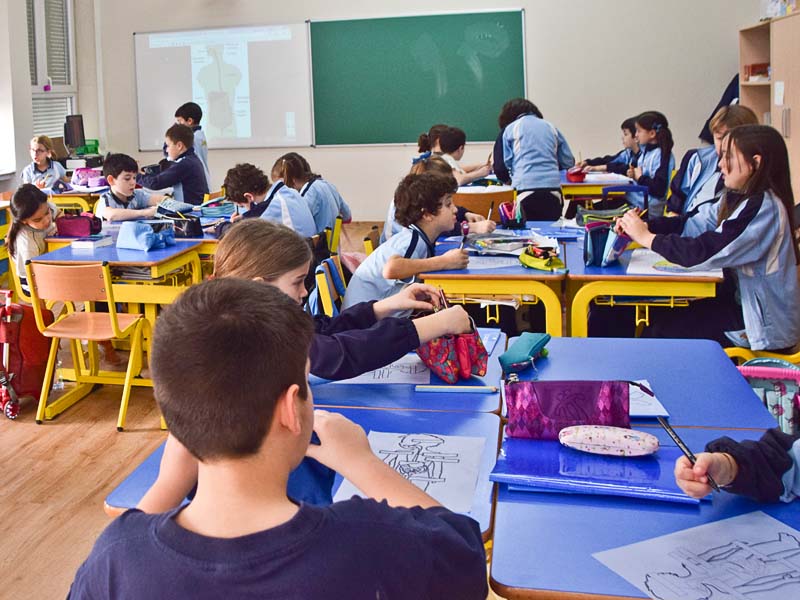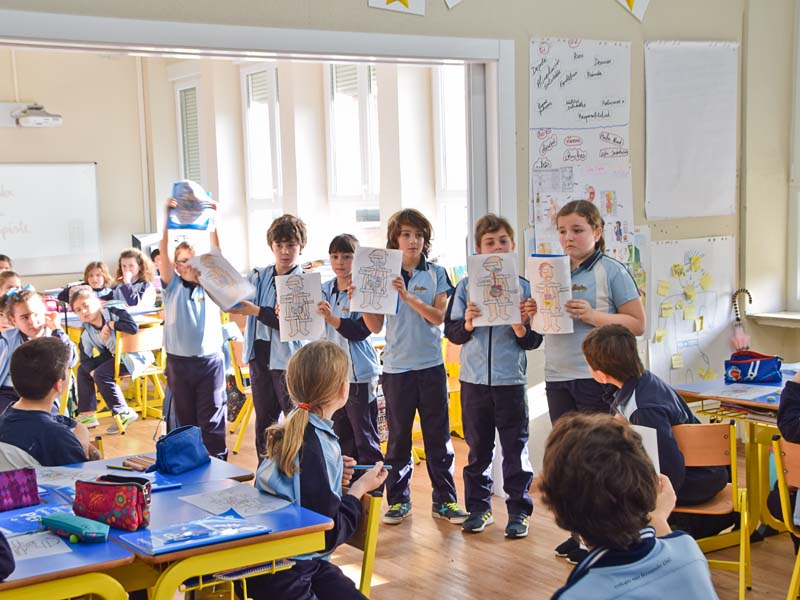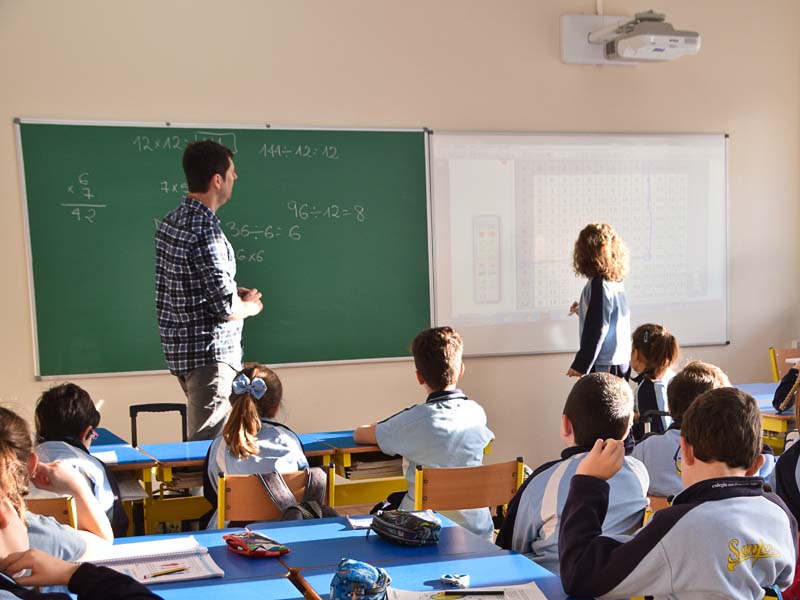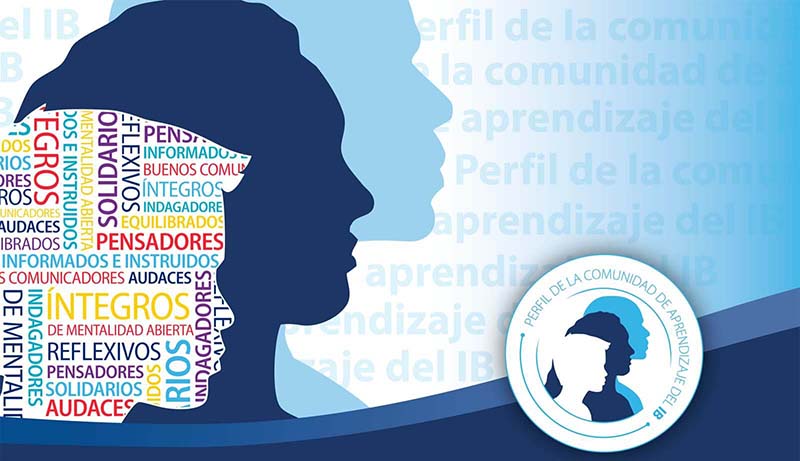
PYP: Primary Years Programme
El Primary School Program (PEP) de international Baccalaureate® is a curricular framework designed for students from 3 to 12 years that prepares them to face the intellectual challenges that will arise in their subsequent studies and in their professional lives. It focuses on the integral development of the child and its capacity for inquiry and discovery, both in the classroom and in the world that surrounds it.
Traditional versus PEP
The contents go from being THEMES To be CONCEPTUAL. This is the big difference between traditional teaching and learning with IB methodology.
PYP Elementary Program Model
Constructivism
The process of thinking construction starts from the students' previous knowledge to link them with new learning and thus organize their thinking schemes, deepening understanding. These new mental constructions are enriched by interaction with colleagues, which convert the learning of content into something meaningful.
The teachers
The IB work method transforms the teacher into a guide, ceasing to be the central axis of the classroom and transferring this role to the students, who must be an active part of their learning.
Transdisciplinary
The IB establishes 6 Transdisciplinary Topics which are the basis on which the Program of Inquiry. These topics are addressed from different areas to establish a deeper knowledge and from different perspectives.
Three-dimensional model
This model considers that the isolated content is not the most important, but the acquisition of knowledge, deepening in key concepts, which are the basis for achieving generalization of learning and transfer to situations of daily life, achieving the understanding of great ideas which are the ones that organize the world.
High levels of Thought
The PYP curriculum and all IB programs teach students not only to know but also to think. Prioritize thinking and understanding, promoting the transfer of knowledge and skills. This way of working helps them achieve high levels of thinking.
The Units of Inquiry
From Infant Education 3 years to 6º of Primary Education, the subjects of natural Sciences y social Sciences they are developed through Units of Inquiry. The LOMCE contents are taught in their entirety forming part of the Program of Inquiry (POI) transdisciplinary
The Inquiry Program is exclusive to each College. The Faculty, together with the Academic Direction and the Guidance Department, have carefully analyzed the contents of these two subjects in the Infant and Primary stages, distributing them in the 6 Transdisciplinary Topics . For each course, each transdisciplinary theme gives rise to a Unit of Inquiry.
Although the rest of the subjects work in a disciplinary manner, connections will be established, whenever possible, with the units of inquiry.
Panel of the Program of Inquiry . The first line shows the 6 Transdisciplinary Topics. Each box documents one Unit of Inquiry for a certain age group. In 3, 4 and 5 Infant Education years 4 Units of Inquiry are developed per course. In Primary Education, 6 Units of Inquiry are developed per course with a maximum duration of 6 weeks each.
The PEP class
The implementation of the PEP Program implies changes in the morphology of the classrooms. Press the images to enlarge.
Forming teams
Knowing how to collaborate and cooperate is a basic learning that enables them for their lives.
Everyone participates
In the processes of inquiry it is essential that students share and carry their previous knowledge in the group, to advance towards the deep knowledge required by each unit of inquiry.
Classroom library
The classrooms have a library where you can find more information about the topics of inquiry. It is composed of textbooks of the subjects of Natural Sciences and Social Sciences of different publishers, and also other books selected to contain relevant information for the inquiries to be made.
Uniting classrooms
On some levels the classrooms communicate through sliding doors. This allows the creation of innovative work spaces that modify the classroom-group concept and achieve the exchange of experiences and peer learning.
Classroom cork
It allows to show the works of the students, while it makes visible the key aspects of the research program in which they are at that moment.
The PEP and families
Many parents have consulted their way of collaborating in the formation of their children before the methodology of the PEP program. Next we make some suggestions that families can value.
- The PYP seeks to instill in its children a series of values defined in the Student Profile . It is convenient that from the family establish guidelines consistent with these principles.
- From a very young age, encourage your children's personal autonomy and collaboration in housework. That they feel active members of the family and not the center of the universe.
- Establish rules that lead to clear routines. Always leave time for rest, family life and also for homework and study. Make sure that your children have a specific site for the study, quiet and without distractions (phones, TVs, etc).
- Take the opportunity to make your children think when they ask them questions, trying that, by questions that you do to them, they are the ones that come to the answer. Look for examples of application in other contexts. This will make what they have learned remember it in the future and associate it with new situations.
- Ask your children to show you and explain the Inquiry Notebook. Ask questions about what you are working on, as this will reinforce what you have learned.
- Keep frequent contacts with the Tutor. The Digital Platform of the School is a good medium. In the PEP program it is essential that parents know and value what their children are learning in each Unit of Inquiry. It is very important that they transmit to the tutor their appreciation of what their children have learned because the method needs a constant evaluation of its generalization, and finding the application of what has been learned in the real world is fundamental.
- "Play" the mathematics with the materials they propose. Note that the methods of mathematics have evolved and sometimes the procedures your children use will be different from the ones you know. Have confidence in the new methods that we implant in the School, they are very tested and their results are magnificent.
- Supervise that your children do homework but never do it. If you organize them or think for them, you can never do it alone.

Adriana Álvarez
PYP Coordinator
More information?
Fill in the form and we will answer your questions.









